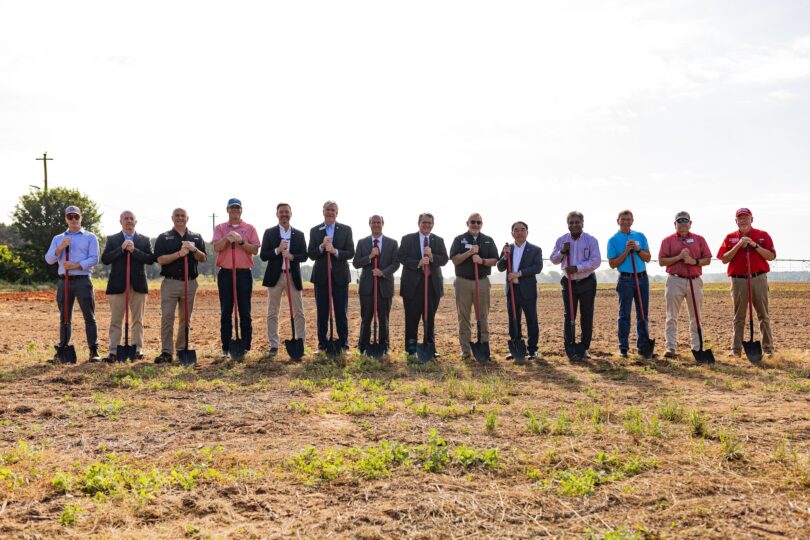 CAES News
CAES News
UGA Grand Farm breaks ground in Perry, Georgia
The University of Georgia College of Agricultural and Environmental Sciences and North Dakota-based Grand Farm came together Friday to break ground on the University of Georgia Grand Farm, an agriculture innovation partnership in Perry, Georgia. UGA President Jere W. Morehead, Georgia Department of Agriculture Commissioner Tyler Harper, Georgia Sen. Larry Walker, Grand Farm Ecosystems Director Andrew Jason and CAES Dean and Director Nick T. Place addressed the crowd of more than 200 attendees.








